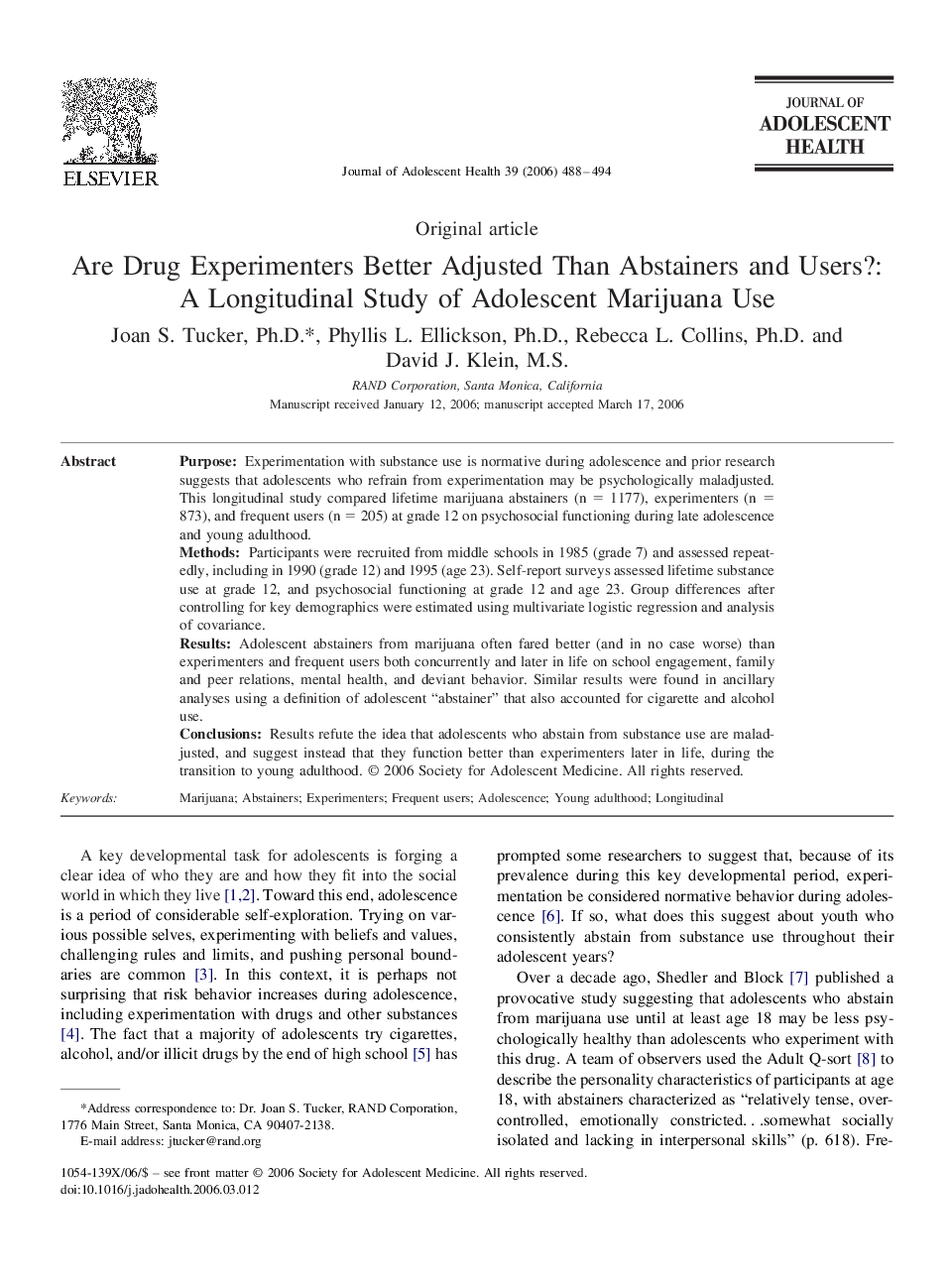| Article ID | Journal | Published Year | Pages | File Type |
|---|---|---|---|---|
| 1081369 | Journal of Adolescent Health | 2006 | 7 Pages |
PurposeExperimentation with substance use is normative during adolescence and prior research suggests that adolescents who refrain from experimentation may be psychologically maladjusted. This longitudinal study compared lifetime marijuana abstainers (n = 1177), experimenters (n = 873), and frequent users (n = 205) at grade 12 on psychosocial functioning during late adolescence and young adulthood.MethodsParticipants were recruited from middle schools in 1985 (grade 7) and assessed repeatedly, including in 1990 (grade 12) and 1995 (age 23). Self-report surveys assessed lifetime substance use at grade 12, and psychosocial functioning at grade 12 and age 23. Group differences after controlling for key demographics were estimated using multivariate logistic regression and analysis of covariance.ResultsAdolescent abstainers from marijuana often fared better (and in no case worse) than experimenters and frequent users both concurrently and later in life on school engagement, family and peer relations, mental health, and deviant behavior. Similar results were found in ancillary analyses using a definition of adolescent “abstainer” that also accounted for cigarette and alcohol use.ConclusionsResults refute the idea that adolescents who abstain from substance use are maladjusted, and suggest instead that they function better than experimenters later in life, during the transition to young adulthood.
